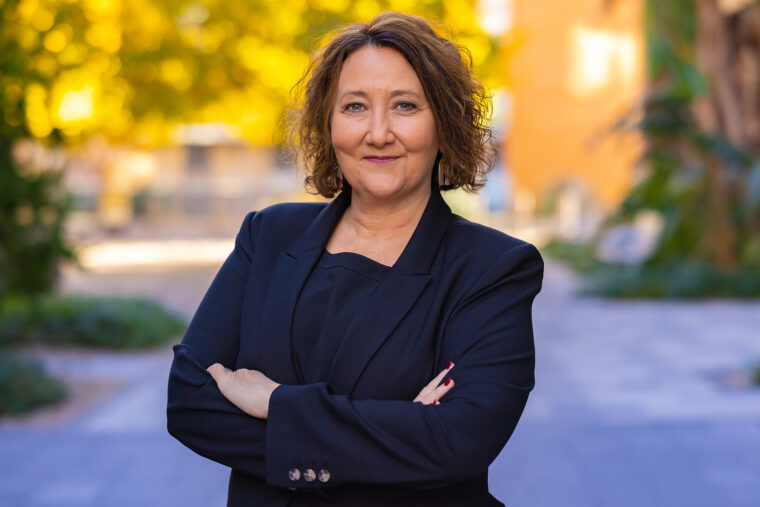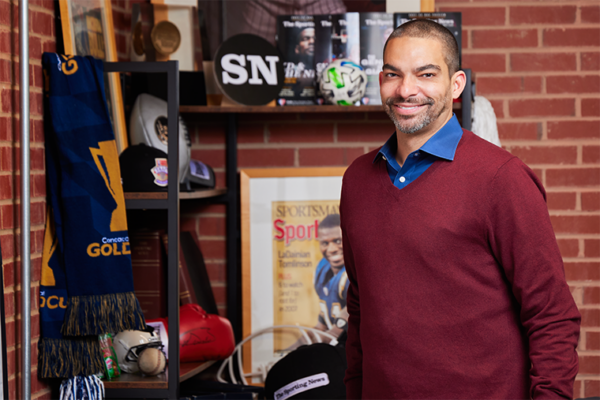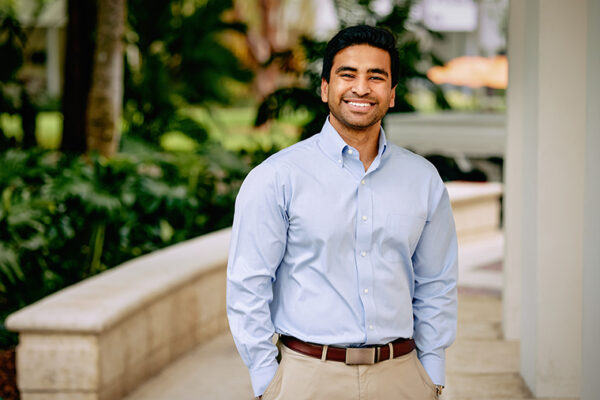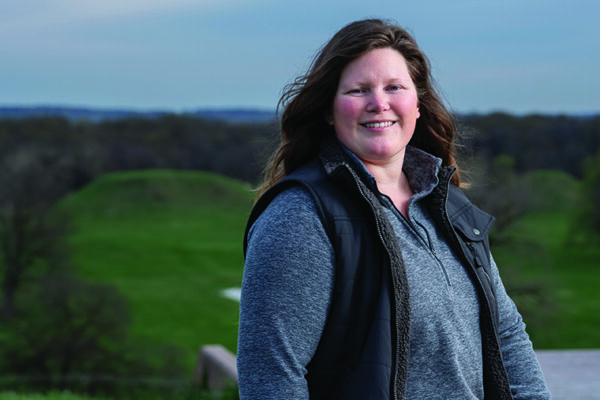A lightbulb went off for Stacy Leeds, AB ’94, while testifying before Congress. A mock Congress, that is. “The final project for one of my classes at WashU’s Kathryn M. Buder Center for American Indian Studies involved advocating for Indian child welfare before a mock Congress,” says Leeds, a Cherokee Nation citizen. “I realized the field of Indian law is what drives me.”
Now a renowned scholar of Indigenous law, Leeds is the first Indigenous woman to be named dean of a law school (first at the University of Arkansas in 2011 and then at Arizona State University’s Sandra Day O’Connor College of Law earlier this year). “I feel honored to serve as a mentor for my students and other Native women across the country,” she says.
Growing up on an Indian reservation in Oklahoma, Leeds played basketball in high school, and her enthusiasm for sports is what drew her to WashU. “Coach Nancy Fahey recruited me to play for WashU,” she says. “I visited campus and met women I’m still friends with today.”
Leeds immersed herself in the history of Native American issues and the civil rights movement. “I learned so much from the late Nancy Grant [associate professor of history],” Leeds says. “She was invested in her students’ success.”
After graduating, Leeds studied Indian law at the University of Tulsa. “A law professor encouraged me to pursue teaching because he felt there was a need for more Native professors,” Leeds says. “So I headed to the University of Wisconsin to study for an LLM degree (Master of Laws) to prepare me to teach.”
She first taught at the University of North Dakota before moving to the University of Kansas (KU) to direct a tribal law center. Leeds also taught a class at Haskell Indian Nations University, a nearby intertribal college. “I was able to recruit Haskell students to go to KU’s law school,” she says. “I was surrounded by positive energy around the Native American community.”
Leeds began to think about pursuing a deanship, and soon an opportunity became available at the University of Arkansas. “They had a history of social justice and cared about diversity and inclusion,” she says. In fact, the University of Arkansas was the first southern law school to integrate ahead of Brown v. Board of Education, the 1954 U.S. Supreme Court decision that ended racial segregation in public schools. Leeds served as dean for seven years and then another three years as vice chancellor for economic development.
“It was a wonderful experience, but I needed a break,” Leeds says. She moved back to Oklahoma to be with family. During this time of soul searching, Leeds decided she wanted to teach again and joined the faculty of the Indian law program at ASU Law. Then another deanship opportunity arose.
“There’s never been a day in my career that I wasn’t thinking about ways to empower tribal communities and grow the next generation of leaders.”
Stacy Leeds
“I had sworn off being an administrator, but I fell in love with the people at ASU,” Leeds says. “It was an opportunity I had to take.” And she knew with this deanship that she needed to pay more attention to her health and wellness.
“I want to make sure I can do this job for the long haul,” Leeds says. “I also want to prioritize wellness for students.” In addition, she wants to increase online opportunities to make law school more accessible and flexible.
Leeds believes it’s important to stay connected to students, so she continues to teach and recently took students to Alaska to study Native legal issues.
On top of her academic duties, Leeds is involved with public service. She’s a former Cherokee Nation Supreme Court justice and is currently board vice president for Native Forward Scholars Fund, a program providing scholarships and social support to Native American students.
Leeds also served as a mentor for Cherokee Nation Remember the Removal, a 950-mile cycling journey on the original Trail of Tears. During the monthlong ride, youth learn about the tribe’s experience during the removal process to the new Cherokee Nation in Oklahoma. “The goal is for participants to take that connection to our culture as they think about ways to lead in the community,” she says.
No matter what the future holds, Leeds wants to continue working with youth. “There’s never been a day in my career that I wasn’t thinking about ways to empower tribal communities and grow the next generation of leaders,” she says.



